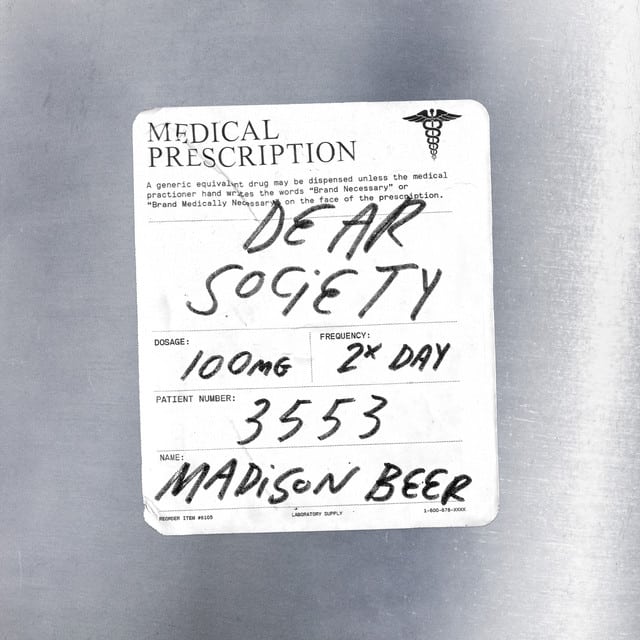Released: 2019
“Dear Society” by Madison Beer, a haunting critique on social expectations and a candid confession of personal struggles, is a multilayered narrative expressing the painful impact of external pressure combined with internal turmoil. Drenched in raw emotion and transparency, the lyrics tread a lyrical path that oscillates between social commentary and self-confession.
Opening with “Sleepless nights and cigarettes / My daily dose of internet,” Beer establishes a setting that is all too familiar in our tech-saturated, pressure-cooker society. The mention of cigarettes and the internet paints a grim image of self-damage – both physical and mental – a regular reality of modern life. She admits to things she “shoulda quit” but didn’t, underscoring our shared addiction to behaviors we know are harmful.
An unexpected twist comes in the line “I’m a natural disaster.” Typically used as an excuse, Madison uses it to show how her chaotic life results from her own actions. This confession is both self-deprecating and defiant, a notable characteristic of Gen-Z pop at its best.
The chorus, with its repetitive admission of “You’re bad for my health,” entwines personal vulnerability with a rebuke of societal expectations. This health isn’t merely physical health, but mental health too. She talks about the toxicity of others – the “tar on your lips,” a likely metaphor for harmful words and criticisms from society.
Culture’s unrealistic expectations of beauty and success take a direct hit in the potent line: “Diets that I shouldn’t try, feels like social suicide.” It’s a nod to the ever-present societal pressure to conform to specific body standards leading to disordered eating and body image issues – akin to “social suicide.”
A powerful indictment comes with “Been 21 since 17, thanks to all the magazines,” highlighting the rush to grow up, fueled by media, causing young people to lose their youthfulness prematurely.
The phrase “you’ve pushed me to the edge” is less a cry of desperation and more a defiant resistance. Like an anthem, it echoes the rising voices of young people who are rejecting societal pressures and embracing their individuality.
Finally, the song signs off with the line, “The truth is, you’re the one who’s always there for me,” a disconcerting validation of the societal influences Beer was criticizing earlier. It’s a stark reminder that we’re all embroiled in a complicated love-hate relationship with society and its conventions, a fact that Madison Beer brilliantly encapsulates in this pop narrative.








